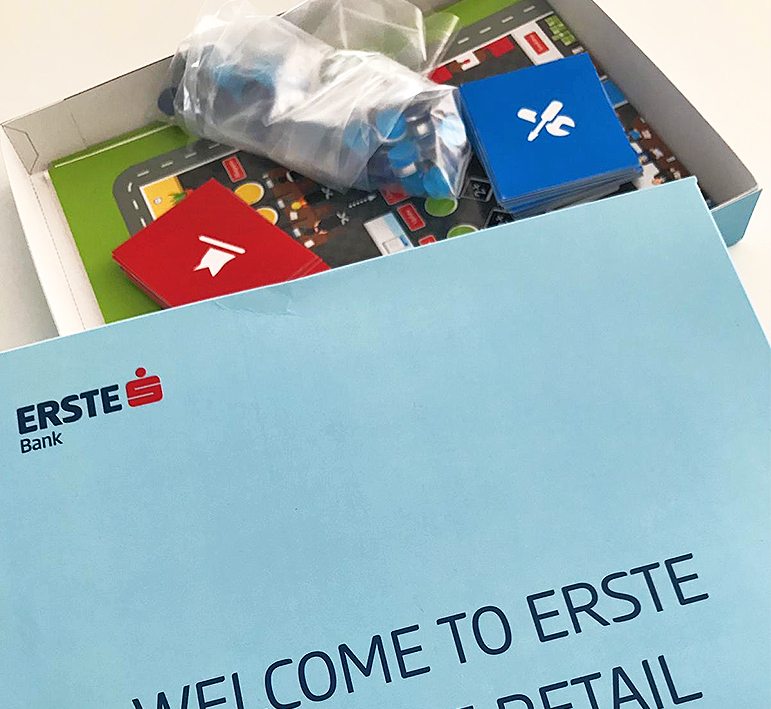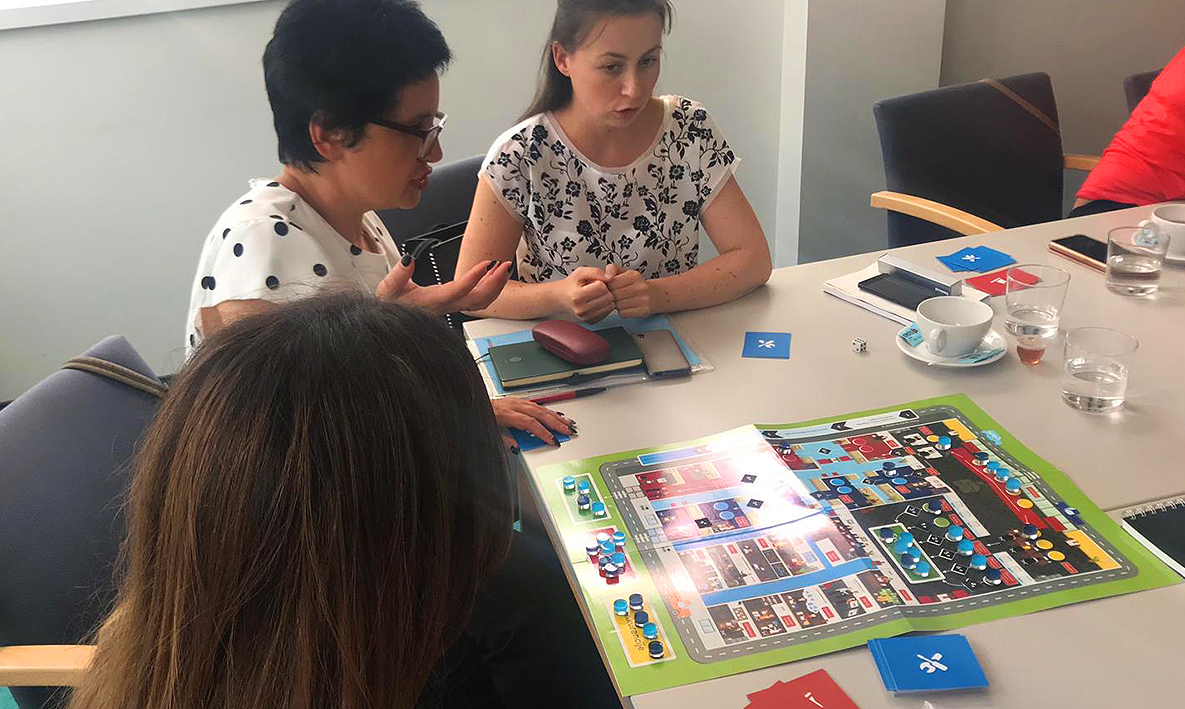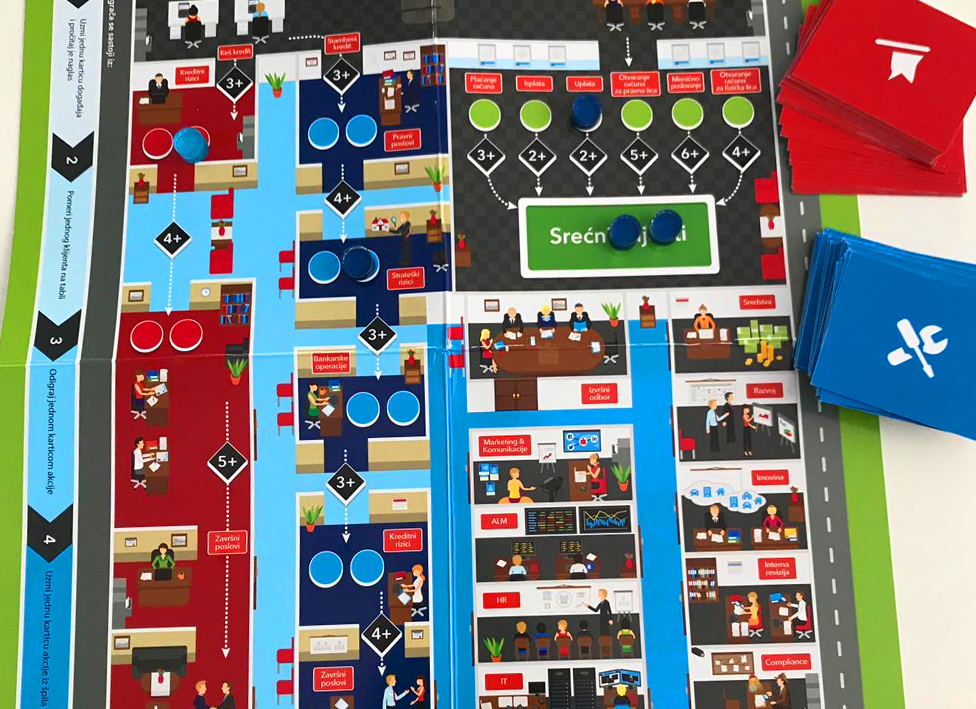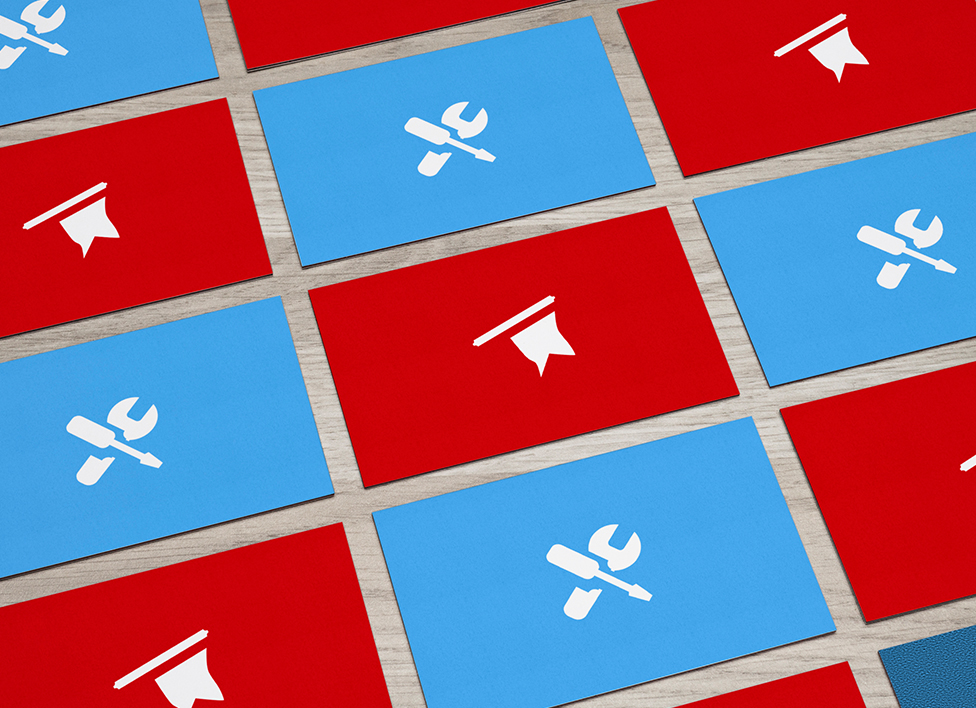Retail is a complicated industry. Various processes clash with the human factor and the impact of even the smallest change can manifest itself rather quickly, for better or worse. The whole cocktail needs to be mixed well, or else it won’t work.
One of the main protagonists of retail are the front desk employees, working to ensure client satisfaction and preparing necessary materials for other processes. In many cases, retail employees are the ones most affected by the results of innovation (e.g. digitalization of processes, tablets, the knowledge of new product app etc.)
That’s why it’s important that the people working in retail are familiar with the various processes, have a strong esprit de corps as well as a developed strategic outlook on the world of retail. Otherwise, you’ll get a department lacking empathy towards the client, with increasing tension between colleagues, non-functioning processes and even whole teams with antagonistic attitudes towards innovation.
Erste Serbia was well aware of this and got in touch with us with a task of designing an educational tool explaining the basics of retail, its processes and future challenges to new employees. Below is the story of what came out of it.
 Client
Client
Erste Bank a.d. Novi Sad is one of the largest providers of financial services in Serbia and the oldest financial institution in the country, established in 1864.
 Starting point
Starting point
To better understand the goal of our intervention, we needed to learn about the challenges retail banking faces in Serbia, its specific processes and strategy for the upcoming years.
Based on our discussions with key stakeholders, we have identified multiple key messages that we have to take into account during the intervention.
- Teamwork is the cornerstone of working in retail. If employees don’t help each other, the impact of that can be felt in by everyone in the store branch – from clients to those working in admin.
- Not all processes are completely smooth. In order for them to work properly, it’s good to know who the main actors are and where any potential bottlenecks can be found. Furthermore, some products have more value to the bank than others, and it’s important to be able to accomodate various client demands.
- Retail banking is not isolated from emerging consumer trends affecting other industries. The customer experience is formed by various trends and innovations, so it’s important to understand their impact on the everyday running of the front office.
Design an onboarding activity for employees that will help them understand the key aspects of retail banking, their role as well as the role of other team members in the process, and present the overall strategy of Erste Serbia for the upcoming years. And as a bonus, all of this has to be squeezed into 60 minutes. Challenge accepted.
 Gamified solution
Gamified solution
Because of the time constraints and the amount of information that needed to be communicated, we decided to design a board game simulation of one branch office. This simulation would include everything that goes on in it – unhappy clients, savage competition, dealing with unexpected situations and the necessity of proper time management. We created a platform enabling players to experience similar feelings to the ones they feel at the branch office, but also for them to be able to see the bigger picture of everyday life in retail banking.

Game as a shortcut to understanding complex issues
The board game solution allowed us to properly simulate what goes in a branch office of a bank. The players are able to see what happens to a mortgage application even after it leaves their desk. As the whole simulation takes place in the safe environment of a game, they are able to experiment and improvise with various strategies of approaching clients, processes and innovations. In a short period of time, players can properly evaluate which behavior produces satisfied clients and which decisions make life unpleasant for them and their colleagues.
Thanks to the implemented gameplay mechanics, we were able to evoke similar emotions of frustration, triumph and expectation that employees experience during their work day (like the feeling of finding a quick resolution to a client’s request, dealing with a client who paralyzes the whole branch, or seeing a queue forming in front of the bank).
The goal of the game was quite simple – at the end of the game, have more happy/satisfied clients than your competition. It was up to the players whether they will try to force their victory by satisfying as many clients as possible with currently existing processes, or whether they were able to think outside the box and invest some of their energy into implementing innovations.
The game teaches players that while innovations may be more demanding in the short run, they are the key to victory down the line.
Thanks to the cooperative character of the game, in which players have to work together in order to satisfy as many clients as possible, the game successfully communicates the importance of teamwork, as well as the repercussions of thinking only about yourself and your own achievements.
 Main tools we used
Main tools we used
-
Mastery and sense of progression
Players start the game as inexperienced employees of the front office of a bank branch which they have to manage. The more experience they gain, the more informed decissions they’re able to make and the more satisfied clients they have. The players experience the feeling of progression and see the higher purpose of their role.
-
Players vs the desk
Players work together in order to defeat their competition, which is not controlled by any player, but impacts the game in the form of various ingame events. This element creates cooperative group dynamics. It also allowed us to introduce various types of events, where it’s up to the players how they decide to handle them.
-
Meaningful decision making and instant feedback
As the game takes place in a simplified, yet authentic snapshot of reality, the players can try out different approaches and see their impact on the course of the game.
 Results
Results
-
Better understanding of the processes in retail banking thanks to a realistic simulation
-
Better interpersonal communication thanks to the empathy developed during the playing of the game
-
Increased openness towards changes and innovations




